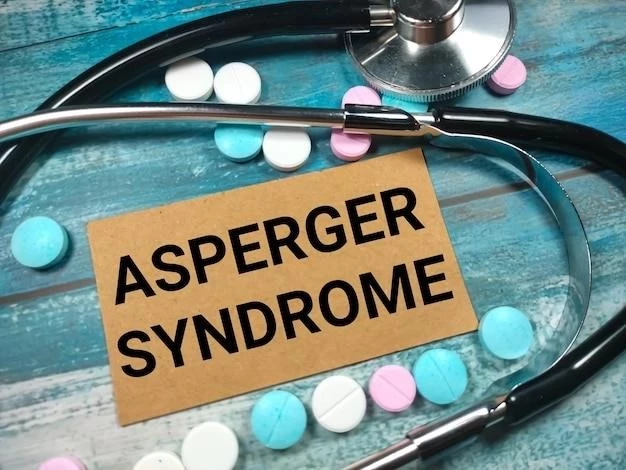Fibrinogen Deficiency ⎻ A Congenital Disorder
Fibrinogen deficiency is a rare congenital disorder that affects blood clotting․ This article explores the causes‚ symptoms‚ treatment options‚ and complications associated with fibrinogen deficiency․ Living with this condition requires coping strategies and support․
Introduction to Fibrinogen Deficiency
Fibrinogen deficiency‚ a rare congenital disorder‚ results from low levels or abnormal function of fibrinogen in the blood‚ impairing clot formation․ Fibrinogen‚ a crucial protein in the coagulation cascade‚ plays a vital role in hemostasis and clot formation․ Individuals with fibrinogen deficiency may experience frequent bleeding episodes‚ prolonged bleeding after injury‚ or excessive bleeding during surgery․ Understanding the coagulation cascade and the role of fibrinogen is essential in comprehending how this condition affects blood clotting․ Diagnosis of fibrinogen deficiency involves blood tests to measure fibrinogen levels and assess clotting capabilities․ Treatment options include fibrinogen replacement therapy‚ desmopressin‚ and antifibrinolytic medications to manage bleeding episodes and promote clotting․ Complications associated with fibrinogen deficiency include an increased risk of bleeding disorders‚ especially during surgical procedures or trauma․ Coping strategies and support systems are vital for individuals living with fibrinogen deficiency to manage the challenges associated with this congenital disorder․
Understanding the Coagulation Cascade
The coagulation cascade is a complex series of events that lead to the formation of blood clots to prevent excessive bleeding․ It involves a sequence of enzymatic reactions and interactions between various factors‚ including platelets‚ coagulation factors‚ and fibrinogen․ The process is crucial for hemostasis‚ the body’s natural mechanism for stopping bleeding․ The cascade can be divided into intrinsic and extrinsic pathways that ultimately converge to form a stable fibrin clot․ Fibrinogen plays a central role in this process by being converted into fibrin‚ which forms a mesh-like structure to trap blood cells and create a clot․ Disorders like fibrinogen deficiency can disrupt this cascade‚ leading to impaired clot formation and increased bleeding tendencies․ Understanding the coagulation cascade is essential for diagnosing and managing congenital disorders affecting blood clotting‚ like fibrinogen deficiency․ By comprehending the intricacies of this process‚ healthcare providers can better tailor treatment approaches to restore proper hemostasis and prevent complications associated with clotting disorders․
Causes and Types of Fibrinogen Deficiency
Fibrinogen deficiency can be caused by genetic mutations that affect the production‚ structure‚ or function of fibrinogen․ This congenital disorder may present as afibrinogenemia (complete lack of fibrinogen)‚ hypofibrinogenemia (reduced levels)‚ or dysfibrinogenemia (abnormal function)․ Inherited fibrinogen deficiencies are typically autosomal recessive‚ meaning both parents must pass on a defective gene for the condition to manifest․ Acquired causes of fibrinogen deficiency include liver disease‚ DIC (disseminated intravascular coagulation)‚ or severe bleeding․ Types of congenital fibrinogen deficiencies can vary based on the specific genetic alterations impacting fibrinogen production or function․ Understanding the different causes and types of fibrinogen deficiency is crucial for accurate diagnosis and tailored treatment approaches to address the underlying mechanism contributing to impaired clot formation․ Genetic testing and laboratory evaluations play a key role in identifying the specific subtype of fibrinogen deficiency a patient may have‚ guiding personalized management strategies to minimize bleeding risks and support optimal hemostasis․
Symptoms and Diagnosis of Fibrinogen Deficiency
Individuals with fibrinogen deficiency may experience symptoms such as easy bruising‚ prolonged bleeding from minor cuts or injuries‚ frequent nosebleeds‚ heavy menstrual periods‚ and excessive bleeding following surgery or dental procedures․ Severe cases can lead to life-threatening hemorrhages․ Diagnosis of fibrinogen deficiency involves blood tests to measure fibrinogen levels‚ assess clotting function‚ and identify specific genetic mutations contributing to the disorder․ Coagulation assays‚ including PT (prothrombin time)‚ aPTT (activated partial thromboplastin time)‚ and fibrinogen activity tests‚ are used to evaluate the clotting process and diagnose fibrinogen deficiencies․ Genetic testing may be recommended to determine the underlying genetic cause of the disorder․ Early diagnosis is essential to implement appropriate treatment strategies and prevent complications associated with abnormal clotting․ Healthcare providers utilize a combination of clinical symptoms‚ laboratory tests‚ and genetic analyses to accurately diagnose fibrinogen deficiency and tailor management plans to address the individual needs of patients with this congenital clotting disorder․
Treatment Options for Fibrinogen Deficiency
Treatment for fibrinogen deficiency aims to replace the deficient fibrinogen‚ enhance clot formation‚ and manage bleeding episodes effectively․ Fibrinogen replacement therapy involves administering cryoprecipitate‚ fresh frozen plasma‚ or specific fibrinogen concentrate products to increase fibrinogen levels in the blood․ Desmopressin‚ a medication that stimulates the release of stored von Willebrand factor and factor VIII‚ can help elevate fibrinogen levels in some cases․ Antifibrinolytic drugs like tranexamic acid may be prescribed to prevent the breakdown of clots and reduce bleeding tendencies․ Surgical and dental procedures in individuals with fibrinogen deficiency may require careful monitoring and pre-treatment with fibrinogen replacement therapy to prevent excessive bleeding․ Close collaboration between hematologists‚ surgeons‚ and other healthcare providers is essential to coordinate comprehensive care for patients with fibrinogen deficiency․ Regular monitoring of fibrinogen levels and clotting function is necessary to adjust treatment as needed and prevent complications associated with bleeding disorders․ Adherence to treatment regimens and prompt management of bleeding episodes are critical in optimizing outcomes and enhancing the quality of life for individuals living with this congenital clotting disorder․
Complications Associated with Fibrinogen Deficiency
Fibrinogen deficiency can lead to various complications‚ primarily an increased risk of bleeding episodes and impaired clot formation․ Individuals with this congenital disorder are susceptible to excessive bleeding following trauma‚ surgery‚ or invasive procedures․ Prolonged bleeding from minor injuries can affect daily activities and quality of life․ Women with fibrinogen deficiency may experience heavy menstrual bleeding‚ leading to anemia and significant discomfort․ Severe cases of fibrinogen deficiency can result in life-threatening hemorrhages that require urgent medical intervention․ Patients undergoing surgical interventions must receive appropriate fibrinogen replacement therapy and close monitoring to prevent excessive bleeding during and after procedures․ Additionally‚ individuals with fibrinogen deficiency may face challenges managing bleeding episodes effectively and require immediate medical attention in case of significant hemorrhage․ Complications associated with fibrinogen deficiency highlight the importance of accurate diagnosis‚ timely treatment‚ and comprehensive care to minimize risks and optimize outcomes for individuals living with this rare congenital clotting disorder․
Living with Fibrinogen Deficiency⁚ Coping Strategies and Support
Living with fibrinogen deficiency requires patients to adopt coping strategies and seek support to manage the challenges associated with this congenital clotting disorder․ Patients can benefit from learning about their condition‚ understanding symptoms‚ and recognizing signs of bleeding episodes to take prompt action․ It is essential to communicate openly with healthcare providers‚ adhere to treatment plans‚ and attend regular follow-up appointments for monitoring clotting function and fibrinogen levels․ Engaging in physical activities with caution‚ avoiding high-risk sports or activities that may lead to injuries‚ can help prevent bleeding episodes․ Support groups‚ online forums‚ and counseling services offer emotional support‚ information sharing‚ and a sense of community for individuals and families affected by fibrinogen deficiency․ Psychosocial support plays a vital role in enhancing the mental well-being and quality of life of individuals coping with a rare congenital clotting disorder․ By actively participating in self-care practices‚ seeking professional guidance‚ and connecting with others in similar situations‚ individuals living with fibrinogen deficiency can navigate the challenges of managing bleeding tendencies and maintain a fulfilling lifestyle․

